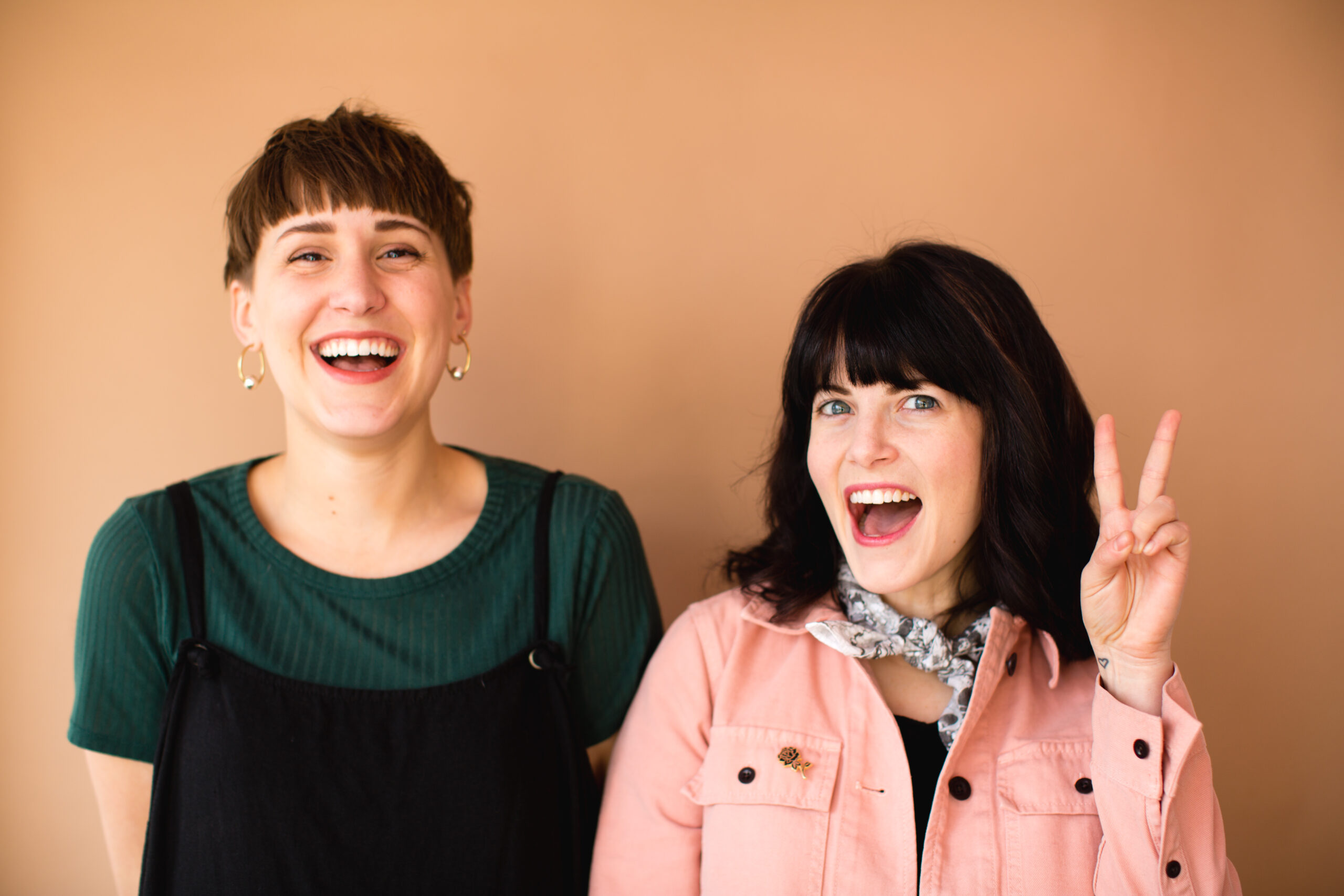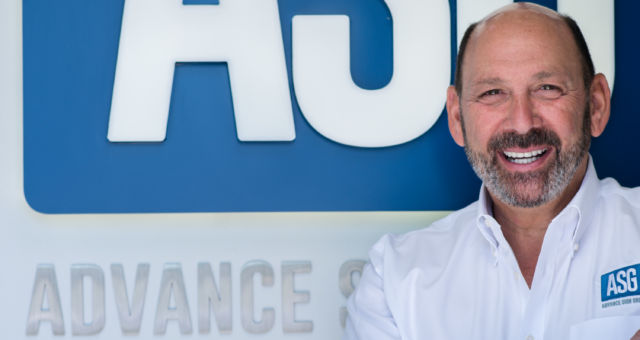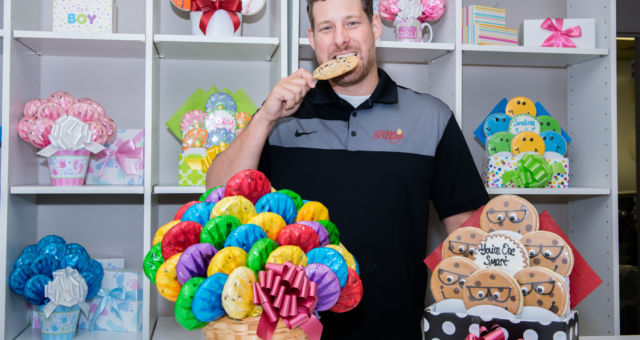From Copy Room to Courtroom: A Columbus Attorney’s Path to Principled Success
From humble beginnings in a copy room to becoming a respected personal injury lawyer, this is the story of a Columbus attorney who found success on his own terms. Driven by a desire to help victims find justice and closure, John Fitch reflects on the challenges, triumphs, and lessons learned throughout his legal career.
By: Brody Howell
Entrepreneurs of Columbus Editorial Staff

Follow The Fitch Law Firm on Socials: Facebook | Instagram
What made you want to practice law?
I think probably a combination of a couple things. I had family members, specifically a couple of uncles, that had a practice in my hometown. Part of it was that I just thought it would be an interesting, if not exciting, career. When I was probably middle school or early high school, there was a TV show called Judd for the Defense. He was this good looking kind of superstar lawyer that would jump in at the last minute and save everybody’s ass. So that was pretty cool.
What did it look like to start your own firm?
It was ugly. It was really ugly. I wasn’t the best student and I didn’t really have any job offers, frankly. When I got to Columbus, my brother and his partner had a very small firm, and they were getting started. I started in their Xerox room doing juvenile court appointments, criminal appointments for like a hundred dollars a case. I struggled for a while until eventually I got a case that I worked very hard on that was successful. It was a personal injury case. I kind of got going from there, but it was a rough start.
Note: If you’re looking for a personal injury lawyer, read our list of the Top Columbus Personal Injury Lawyers.
Where are you from originally and what made you want to settle in Columbus?
I lived in a rural area North of Portsmouth. We just called it Clay Township. But I went to Ohio State undergrad, went off to law school, but always wanted to live in Columbus.
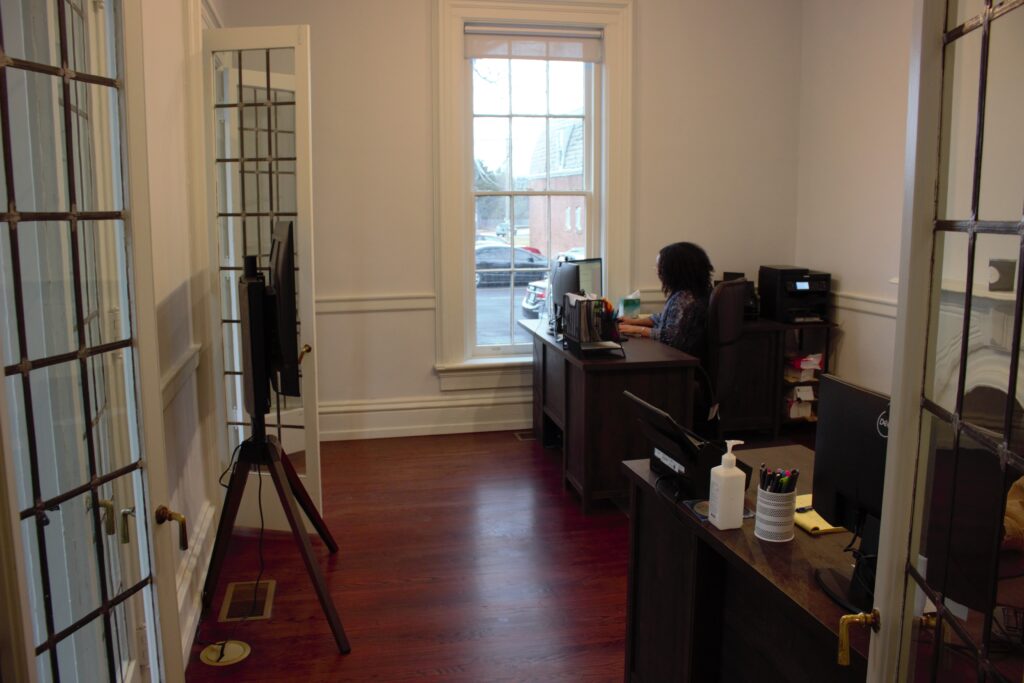 So what would you say Columbus means to you and your business?
So what would you say Columbus means to you and your business?
Well, I’ve been in Columbus for a long time now. I like Columbus a lot. I am a big OSU football fan. When I was at Ohio State, I made a lot of friends and I had a great time. My two boys that I raised grew up in Bexley. It’s been my home really since I finished high school. I’ve always considered Columbus home.
What are some of your favorite spots in Columbus?
Lifetime Fitness. Ohio Stadium. I’m a huge Ohio State football fan. I like to go out for dinner and I can name some restaurants. I’m a pretty big fan of the Bexley Drexel Theatre. A lot of times now I’ve seen some movies that are not necessarily commercially successful, but maybe foreign films or whatever that are great for me. Those are some of the things I like to do.
I know a lot of business owners have this idea that growth equals success. What would it look like to grow your practice?
Well, actually, we have tried to grow the practice and we’ve had some success with it. I don’t necessarily agree with the concept that growth equals success. I mean, I guess it depends on your definition of success. Success to me is more than making money, first of all. Secondly, success to me would be enjoying what you do, having a good work environment. Working with people that you enjoy working with. That doesn’t always necessarily equate to having a lot of employees or a big business. I guess the way I see it, there are some downsides to trying to manage 50 or 100 people.
What was the turning point that made you realize you were successful in the way that you were defining it?
Well, I don’t want to sound kind of full of myself, but I feel like I’ve been successful for quite a while. I feel like I do good work. We try hard to take care of the people that we represent. I think I’ve been able to make an impact on people’s lives or people we represent for a long time, I would say, most of my career.
What does it mean to you to be helping people? How would you define that?
Well, in the context of my work, I would define it as a successful resolution of their case. You know, that’s part of it. Another part of it is for people that have been victimized, and we do represent a number of people that have been victimized in various forms, seeking accountability for a wrong that has been done to them. It’s very important to be bringing some closure to what has been a traumatic event in their life. I would say all of those things.
What made you want to get into this specific area of law instead of the myriad of other things you could have done legally?
I felt like I had some kind of natural ability in this niche of litigation and personal injury. I wanted to be in the courtroom. I wanted to do litigation. I felt like I had some ability to speak and to persuade. I never really had any interest in more esoteric kinds of stuff, like writing briefs or filling out forms or, you know, that sort of stuff. I just felt like my background was more suited to do this type of work.
That’s why I pursued personal injury. There aren’t many areas of the law that you can actually get into the courtroom on a regular basis. One would be criminal work, which is very difficult to do, not only from an emotional standpoint, but as a practical matter. It’s difficult to have any level of financial success.
The other area is civil litigation and personal injury in particular tends to get you more in the courtroom than really about any other area.
 What was it like for you the first time you lost a case?
What was it like for you the first time you lost a case?
Well, I think there’s this notion maybe from Hollywood that lawyers never lose cases. Good lawyers, great lawyers never lose cases, which is really a lot of bullshit. Every lawyer that tries cases will lose a case at some point, maybe multiple times, and that doesn’t necessarily mean you’re a bad lawyer. You can be a great lawyer in those cases.
The case that was my first loss was very early on. I did some criminal defense and it was a horrific crime that the client was found guilty of. He had beaten to death a World War II veteran who was out drinking. My client saw that he was drunk and he had money, so he lured him outside. The old man was handicapped and he beat him to death with his own crutch, cracking his skull. So my job was to represent the client, go with the client’s story. He admitted to robbing him, but he said he had nothing to do with beating him and blamed it on a co-defendant. I did the best I could, but I didn’t feel bad at all about the verdict. It was what it was.
There was no real offer on the table to get him anything less than what he was charged with. I didn’t feel bad about it.
How do you separate your personal feelings from the circumstances in a case?
Well, I mean, as a professional your personal feelings don’t really come into play. So I think this is something that a lot of the lay public find difficult or have difficulty with, the concept that you could actually represent someone who’s, you know, done these horrible things. But it goes back to what you’re trained, to your training in law school, and the theory is that your job as a lawyer is to raise all of the arguments that can be raised and put your client’s case in the best possible light. It is the responsibility of the other side, be it prosecution or whatever, to do the same thing. Think of it as both sides are in this clash and they’re raising all of these arguments. So let’s call them points.
You kind of throw them up in the air, and you have a neutral third party, the jury, sitting in the middle of this clash. It’s their job to take the arguments and figure out what’s right, what’s wrong, what’s true, what’s not, and come to a conclusion. You don’t say things that you know to be untrue. You simply argue a case to the best of your ability based on the facts that you’re given, and that’s how the process works.
So to me, it’s not a matter of separating personal feelings. Obviously, you want to prevail and you want to do the best job for your client. but it’s your job as a professional just to put that case in the best possible light and then the jury will make the decision.
So at the end of the day, your feelings on the matter aren’t even a consideration.
They’re never on the table. Will I feel bad if I get a disappointing outcome? Yes. Does that affect my ability to prosecute the case? No. You’re not really a professional if you let your own personal feelings and emotions weigh on your job as a lawyer and things that you should be doing.
What would you say is the most challenging part of being a lawyer?
Well, I’ll answer in two ways. So part of what we do here is we represent children who have been sexually abused. In terms of my work, even at my age and all of the battles that I’ve fought over the years, that is one of the more difficult things to do from an emotional standpoint. It’s just hard to listen to what some people have suffered. It’s just never easy, but it’s part of what we do.
At the end of the day, we’re proud that we do it and we think we’re pretty good at it, but certainly that would be one of the more challenging aspects of our work.
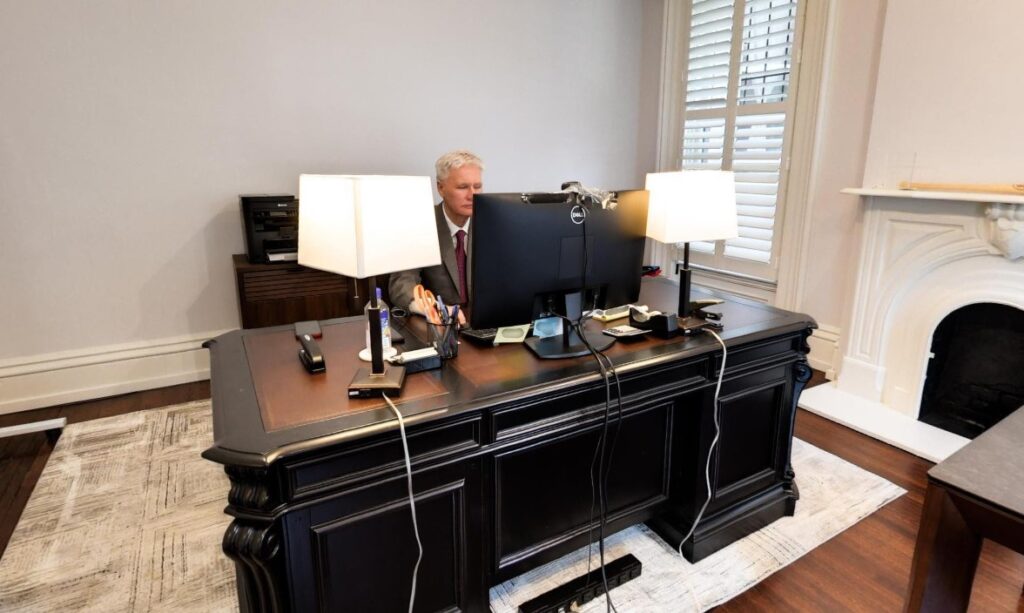
Do you ever feel beaten down by the stress of all of that or the weight of the world?
No. I don’t. So I deal with stress. The gym is kind of my second home. I’m there five days a week, maybe six. So I leave work and I go to the gym almost every day. I try to exercise.
That’s how I deal with some of the stresses of the business, but I don’t get beaten down by the world. I think I’m pretty fortunate to be where I am. I think you just have to keep thinking in perspective. There are a lot of difficult things in the world. My view is you just have to keep your chin up and your shoulders back. Keep putting one foot in front of the other.
Note: Need to find a gym of your own? Check out our list of the Best 10 Gyms in Columbus to find the right fit!
What would you say is the most technically challenging part of running a law firm?
For me, one of the most challenging aspects of what Sarah, my assistant, helps me with is just the marketing aspect of it, the business aspect of it. It’s an extremely competitive world and we’re relatively small. It can be difficult for us to compete with some of the larger firms.
Note: Head over to the website for The Fitch Law Firm to check out just one of the ways they market their business!
Is there any advice you would give to someone wanting to get started as a lawyer?
I would say just go do it. You know, just go do it. If you have grit and you have determination and you work hard and you’re good at what you do, the odds are that you’re going to, well, that you’re going to land on your feet and you’re going to be okay. Just to expect a lot of bumps in the road, which isn’t necessarily a bad thing. I think the challenges that I faced, particularly early on in, were quite helpful for me.
I think that it’s fair to say that every business owner has some sort of flaw. What would you say is your biggest flaw?
I don’t necessarily consider it a flaw, but some business people may, and that is that we don’t always focus on purely making money, by which I mean we will take cases that sometimes I know we’re not going to make any money. We do it because we feel like it’s the right thing to do. I don’t want to sound self-righteous, but if you look at that from a business perspective, certainly there are times when we have taken and we will take cases that from a financial standpoint, it may not be in our best interest. We do it because sometimes I see an injustice from my standpoint, from my perspective, and I want to try to do something to at least shine the light on it.
What do you think it means to be an entrepreneur?
I see an entrepreneur as someone who starts their own business and is driven to be successful in that business. I guess it’s great if you can be a Jeff Bezos or an Elon Musk, but I don’t think you have to build a multi-billion dollar business to be an entrepreneur or to be successful at it.
What do you think makes most businesses fail?
Well, I’m not sure that I’m the best person to answer that question. I would say probably planning and thinking through before you get started. I don’t think you want to just stumble blindly down this road. Of course you have to have the resources and the means to survive for those first few years until you can get things going.
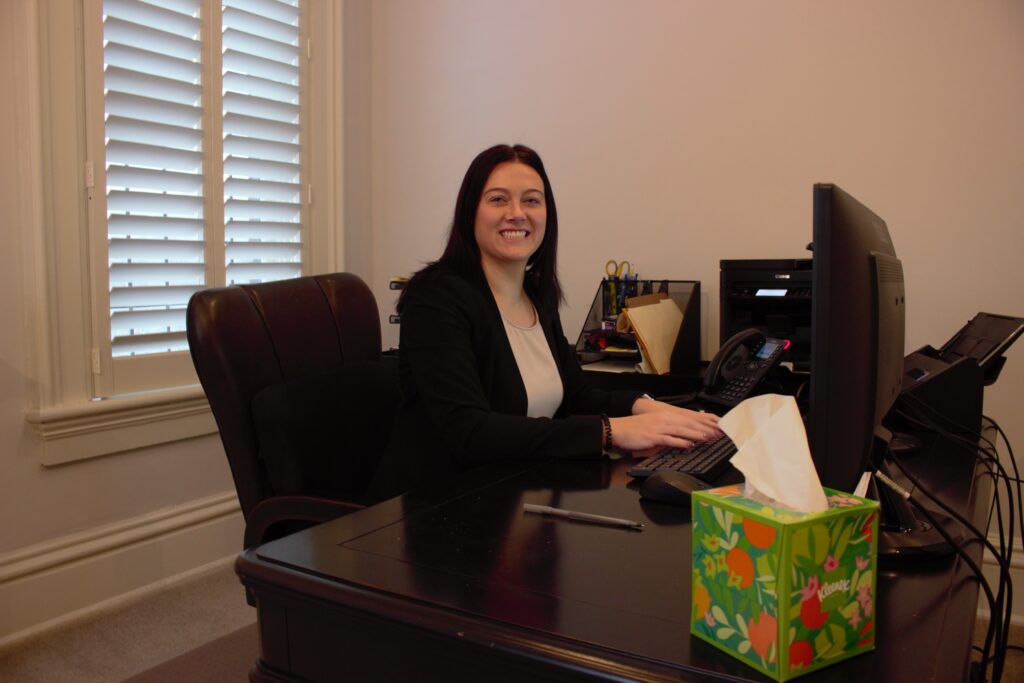
Do you feel like you’ve made any mistakes as a business owner?
Oh sure. Yeah, I make a lot of mistakes.
Think back to one of your biggest mistakes. What did that cost you?
Well, when I was younger, I really, really focused on just being a lawyer. I just wanted to be a lawyer. I didn’t necessarily want to be a great businessman. Of course I wanted to be successful, we all do, but I would go to the library at night, particularly early on in my career, when I didn’t have that much work. I would read and study about great lawyers and trial techniques, that sort of thing. What I should have been doing was focusing more on the business aspects of the practice of the law.
How do you generate cases? How do you market? Those sorts of things. I would say that was one mistake. I don’t regret doing all the studying I did, but it should have been more of a balance with an eye towards more of the business aspects of the practice.
What tools do you feel like helped you the most with that?
Networking. More networking with other lawyers. Getting ideas on how to grow the business, how to market, what works, who do you work with, who you don’t want to work with. In this day and age it’s more about technology of course and the internet and all that stuff.
Where do you see the Fitch Law firm ten years from now?
Well, that’s an interesting question. I’m not really sure. I’m not going to do this forever, so whether I pass the baton and how I pass the baton is something that I began to think about, but I don’t really have any concrete plans at this point. I still enjoy the work. I might just ride off into the sunset, and I will have enjoyed my ride.
As John Fitch looks to the future, his journey serves as a testament to the power of perseverance, principled practice, and a genuine desire to make a difference. Whether he chooses to pass the baton or ride off into the sunset, his impact on the legal landscape and the lives he’s touched will undoubtedly endure beyond the courtroom walls.

